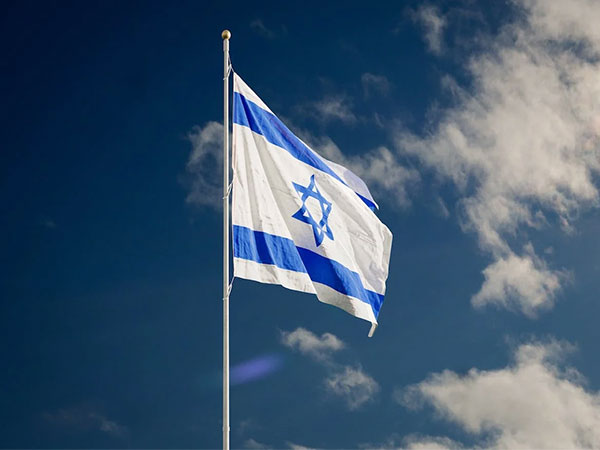India achieves feat of 2 billion COVID vaccine doses
Jul 17, 2022

New Delhi [India], July 17 : As India achieved the feat of 2 billion COVID vaccine doses on Sunday, a journey which took 18 months since its commencement, it's time to look back at the timelines leading to the achievement of this feat.
The World Health Organization had declared the COVID-19 outbreak, which began in China's Wuhan as viral pneumonia in 2019, and a pandemic on March 11, 2020. India reported the first fatality in Karnataka's Kalburgi on March 12, 2020.
The Central government set up a high-level task force for COVID vaccine and Covid diagnostic development on April 19, 2020, and a national expert group on COVID vaccination in August 2020.
The government, on November 29, 2020, announced a stimulus package of Rs 900 crore for the 'Mission COVID Suraksha', the Indian COVID vaccine development mission.
Soon after the announcement, Covishield and Covaxin were approved for restricted use in emergencies on January 1 and 2 respectively.
On January 16, 2021, Prime Minister Narendra Modi launched the COVID-19 vaccination drive for healthcare workers and on February 2 for frontline workers.
Then came the vaccination drive for senior citizens (above 60) and people with co-morbidities (45 - 59 years) on March 1.
The vaccination drive for all persons aged 45 years and above started on April 1.
On May 1, persons aged 18 years & above (In Private sector/ State's prioritization) started their vaccination.
Free vaccination to all persons aged 18 years and above started on 21 June, 2021.
Adolescents (aged 15-18) started getting vaccinated early this year on January 3, 2022.
On January 10, 2022 India started administering precautionary doses to healthcare workers, frontline workers, senior citizens and people with comorbidities.
Vaccination for children aged 12 to 14 years started getting vaccinated on March 16, 2022. Along with that vaccination for precautionary does for all persons 60 years and above stated on March 16 this year.
Free Precaution dose for all persons aged 60 years and above started on April 10 and along with that paid precautionary dose for people for 18 years and above started on April 10.
Free precaution dose in government health centres for all persons aged 18 years and above started on July 15, 2022.
The vaccination program was completed in seven phases.
Vaccination for lactating mothers was approved on May 19, 2021 and for pregnant women on July 2, 2021.
India's COVID vaccination drive touched the 1 billion dose mark in October 2021 in nine months and five days since its commencement.
India's accomplishment in developing not one but multiple vaccines for the COVID-19 virus can be accredited to several systemic interventions taken at the leadership level.
Under Prime Minister Narendra Modi's proactive and visionary leadership, India supported the research, development and manufacturing of COVID19 vaccines under the "Make-in-India" and "Make-for-World" Strategies.
The government embarked on the use of cutting-edge technologies like CoWIN for evaluating geographical coverage, tracking AEFI for vaccines, promoting inclusivity and for providing a single reference point for citizens to follow their vaccination schedule, and prioritising vaccine administration based on scientific evidence and global best practices.
Several systematic interventions were also carried out in ensuring capacity building for carrying out this nationwide exercise.
The existing supply chain for storage and transport of COVID-19 vaccines was leveraged and strengthened and effective monitoring of vaccine distribution and assured availability and efficient utilization of vaccines and syringes were ensured at all times.
A close collaboration of the Ministry of Health and Family Welfare, Ministry of Civil Aviation, State Governments and Vaccine Manufacturers ensured the delivery of COVID-19 vaccines to 60 consignee points across the country within three days.
India's free and voluntary nationwide COVID-19 vaccination exercise was carried out in a citizen-friendly approach through initiatives like Har Ghar Dastak, Workplace CVC, school-based vaccination, vaccination of persons with no identity documents, Near-to-Home CVC and Mobile Vaccination Teams.
With 71 per cent of CVCs located in rural areas and over 51 per cent of vaccine doses administered to women, India's National COVID19 Vaccination Programme also ensured geographical and gender equity.
As many as 213.51 crore syringes were mobilized for the national COVID-19 vaccination Programme.
India has administered 1,99,98,36,832 so far cumulatively with 1,63,168 more vaccine shots to go for the 2 billion doses feat."
"Witness the history in making! India under PM @NarendraModi Ji's leadership is all set to achieve the 200-crore COVID-19 vaccination mark! Countdown starts," tweeted Union Health Minister Mansukh Mandaviya on Saturday.
Mandaviya launched 'Covid Vaccination Amrit Mahotsav' at Covid Vaccination Camp in Nirman Bhawan here on Friday and appealed to the masses to get the free dose so as to ensure protection against COVID-19."
"All Health Ministry employees initiated their inoculation of the free doses. My appeal to all citizens above the age of 18 years to get the free dose to ensure your protection against COVID19," said Mandaviya.
"On 'Azadi Ka Amrit Mahotsav', all eligible populations (18+) can get a free precaution dose for the next 75 days, starting today," he added.
The free vaccination drive has been launched with an aim to increase the uptake of the precautionary dose of the COVID vaccine among the eligible adult population.
This special vaccination drive is a part of the celebration for 'Azadi ka Amrit Mahotsav' and aims to provide free precaution dose for all adults (18 years and above) eligible population at Government COVID Vaccination Centres (CVCs).
The Centre has announced a special drive 'COVID Vaccination Amrit Mahotsava' to be launched to provide free precaution doses at all Government Covid Vaccination Centres for persons aged 18 years and above for 75 days from July 15 to September 30, 2022.
Those eligible for the precaution dose include all persons above 18 years who have completed 6 months (or 26 weeks) from the date of administration of the 2nd dose.



















